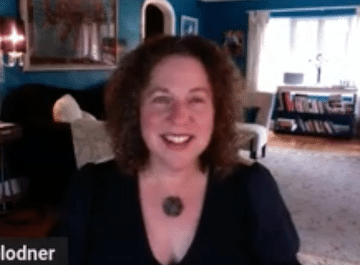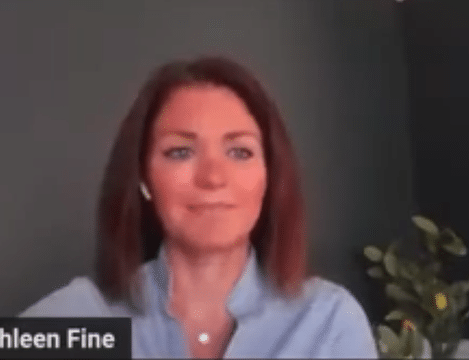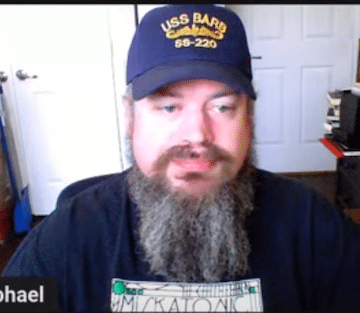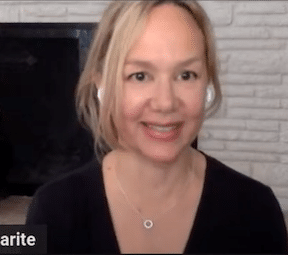There are a lot of blog posts out there about how to write better. You’ll find a fair number in our Writers Resource Center. But this isn’t that. This article is about how to write faster — or, more precisely, how to write more words.
Publishing my first novel took me six months, from hand-writing the first sentence to seeing it go live in the Kindle store. Since then, I have written a further 23 novels, plus a 30,000-word novella and two short stories.
That’s roughly 2.5 million words of fiction. For the first three years of my new career as a thriller author, I was also working as a copywriter. Leaving out the stuff I wrote for my copywriting clients, that’s an average of 1,142 words a day, every single day since April 2015.
As it happens, I do, actually, take holidays and rarely write much on the weekends. I also keep office hours and have time to walk my dog, play the guitar and do odd jobs around the house.
That brings my working-day output to 1,852 words.
Now, I know I’m not in the super-league of output, but I believe it’s a respectable number of novels. When my friends or fellow authors ask me how many books I’ve written, and I tell them, they are usually surprised.
‘‘How do you manage to churn them out so quickly?’’ they ask.
Leaving aside that word – churn – which makes me wince, as if all I do is sit at my desk winding the crank on a sausage machine, it’s a great question. Particularly because, absent a massive global bestseller, book writing, and especially book publishing, is a numbers game. Especially if you want to make your living at it.
The equation’s pretty simple. More books = more cash. The question, then, is how do we write more novels, faster?

She’s limbering up to write a skeleton outline.
(Photo by Ekaterina Kuznetsova, Unsplash)
Writer’s Productivity Hack #1 – Write a skeleton outline
We are told that authors fall into one of two camps. The Planners or the Pantsers.
Members of the first group have a detailed plan of their novel and just fill in the blanks. Advantage: you know exactly which scenes you have to write. Disadvantage: it can suck the joy out of the creative process.
Members of the second group, who fly by the seat of their pants, just inhale deeply, flex their fingers over their keyboard and … start. Advantage: it’s spontaneous and you can start immediately once you have the spark of an idea. Disadvantage: if you lose your mojo, you get stuck with either multiple paths to follow or none at all.
But.
Like most binary divisions – the endless media stories about ‘‘A types’’ and ‘‘B types,’’ for example – this dichotomy is false.
There is a middle ground, and it’s one covered in this First Draft Friday where guest host Lucy Score interviews USA Today bestselling author Steffanie Holmes.
More detailed than a one-sentence elevator pitch, less than a full, multi-page plan, a skeleton outline contains the bare bones of the plot (pun intended). Its beginning, middle and end. Its high and low points, its set pieces, the A and B stories. All that.
If you’ve submitted a manuscript to the Authors A.I. artificial intelligence Marlowe (and if you haven’t, why not?), you’ll be familiar with her brilliant green and purple story arc diagrams. Your outline should contain most of the plot turns that demarcate that arc.
With an outline, you have fleshed out enough of the story to get writing, and to know where you’re going next. You retain the Pantser’s spontaneity while benefiting from the Planner’s route map.
Why it works
Hack #1 works because you shouldn’t find yourself staring at a blank screen thinking, Well, now what? If you’re at your writing desk, you’re writing.
Writer’s Productivity Hack #2 – Don’t look at the horizon
It’s tempting, as we write our novel, to focus on the endpoint. That huge, climactic confrontation between our protagonist and their nemesis. The romantic clinch in which all previous misunderstandings are swept away by the pure light of true love.
But unless we’re already writing the penultimate scene, that place is too far away. It’s visible on the horizon, but there are forests, rivers, towns, high walls, bogs, farms, dragons, zombie hordes and hostile militias standing between us and our destination. All of which can feel a little too daunting.

They’re going to seriously slow you down.
Better to focus on the scene we’re writing now, the one that comes next and no further. This method ensures we know what we need to do to ensure this scene leads smoothly into the next. And it’s enough to get us all the way home.
If you say to yourself, ‘‘All I need to think about is this scene and the next one,’’ it stops you buckling under the pressure of all those obstacles in your way. The fortified town is two scenes away. The river in full spate, three. They’ll get their turn as the next scene, just not yet.
Why it works
Hack #2 works because anxiety slows us down and it’s a real buzzkill for the creative mind. Parking all of it except that needed to take one more narrative step frees us to focus on writing this scene.
Writer’s Productivity Hack #3 – Fire your (internal) editor
Whether you edit your own books, have a friend do it, or pay a professional, the trap is the same.
As your words appear on screen before you, it’s incredibly hard not to start mucking about with them. But like most temptations, it’s injurious to your health. You might spend 15 seconds writing a 10-word sentence. But then three minutes elapse while you tinker with it.
And, yes, maybe, at the end of that admittedly short period, you have wrought something stronger, finer, cleaner. But you were going to do that anyway.
Let’s assume that each edit you make takes the same amount of time whether you do it in-line or once the whole manuscript is finished. (I happen to believe it doesn’t, but anyway.) The constant interruptions to your flow state slow you down. So while the editing might take the same time, the production of the first draft takes longer.
The problem lies in the constant switching between two ways of thinking.
On the one hand, there’s the freewheeling ‘‘creative mode’’ where your fingers fly over the keyboard and the process becomes akin to describing events as they happen rather than typing them into being.
On the other, there’s the ‘‘analytical/critical mode,’’ where you judge each word, each sentence, each paragraph, weighing up options, ascribing values to them, deciding which way to go and them altering your text accordingly.
It takes time to recalibrate from one to the other. In his book Flow: The Psychology of Happiness, Mihaly Csikszentmihalyi (Me-hi Cheek-sent-me-hi, if you’re interested) estimates that each interruption to our flow state requires a reset period of up to 45 minutes. If that applies to you, then you’re never going to enter that dreamy state known as flow, where effort, and time, disappear from your creative process.
Why it works
Hack #3 works because entering, and staying in, flow speeds up your writing – and your editing. The overall time taken is cut, leaving you with more words per day.
Writer’s Productivity Hack #4 – Keep yourself regular
The writer’s life, eh? All that freedom. All that spontaneity! The muse seizes you by the scruff of the neck at 3 a.m.? No problem. Just leap out of bed and start writing that fiery scene between the two lovers.
Out on a dog walk and inspiration strikes? Drag out an index card or your phone and jot it down.
This, my friends, is the way to low productivity. Encouraged by your mistaken belief that you can be writing anywhere and everywhere, any time of the day or night, you lose the iron discipline you need to be a productive writer.
Because now, procrastination is merely moving your writing to a different place. No ideas at your desk? No worry! Just shift it to your music room, or your yard. Surely while sweeping up the leaves or figuring out that cool Hendrix lick you’ll ‘unlock the block’.
Nu-uh. Work is a habit. And possibly my favorite quote on work is from Stephen King.
‘‘Talent is cheaper than table salt. What separates the talented individual from the successful one is a lot of hard work.’’
Or this, from David Ogilvy, one of the original Mad Men:
‘‘Hard work never killed a man. Men die of boredom, psychological conflict, and disease. They do not die of hard work.’’
My advice is to find out through a brief period of trial and error (a week, max) when you are at your most productive. Then set aside that time every working day for writing.
And by that time I don’t mean the 20 minutes between your third coffee of the day and the lunchtime news. I mean either the morning (all of it), the afternoon (all of it), the evening (all of it) or the night (OK, half of it).
For me, it’s the morning. Apart from walking the dog, I keep my mornings free. No meetings. No phone calls. No exercise. Nothing. I go into my office, I sit at my desk, and I write. At 1 p.m., I stop.
As a sub-hack, I also give myself a daily target: 2,000 words. That’s 10,000 words a week. And that’s a new book after eight weeks. Yours might be 300 words, or 750, or 6,000. It doesn’t matter. What matters is that you hit it. Day, after day, after day.
And because I am pathetically motivated by valueless pats on the back, I have five paper clips on the plinth of my iMac. Each time I hit my daily target, I return one of the little bleeders to its box. Further writing that day is welcome but doesn’t count toward the next day’s target.

Shh! Don’t distract her: she’s working.
(Photo by Daniel Thomas on Unsplash)
Why it works
Hack #4 works because when you spend three or four a day at your desk writing, you will produce more words than the writer who meanders through her day waiting for the right moment, or searching for just the right background music.
Writer’s Productivity Hack #5 – Meet my best friend, ‘Plinky’
Have you ever experienced the following scenario? You’re halfway through a rip-roaring passage of your novel. Your protagonist encounters a new person, piece of equipment, city or species and you’re seized with the overwhelming need to get it right.
You break off from writing to do a quick web search. You type in “poison arrow frogs” or “Regency corset design” or “Soviet-era small arms” or “public parks Tehran.”
Half an hour passes in blissful absorption as you stroll down rose-filled green spaces in Iran’s capital city (urban population 8,693,706, elevation 900 to 1,830m, main shopping street Valiasr Street). Or perhaps you find a site that allows you to upload a picture of you in your undies then don 18th century foundation garments.
Of course you have! We all have.
But Google is the thief of time. And researching uses different skills to composition, dropping you out of that flow state I talked about earlier.
When you’re writing your first draft, every time you find you need to know something, ignore the pull of the Web. Type a nonsense word instead. I use ’’plinky.’’ The nonsense factor is important, as I will shortly show you.
Then carry on. Here’s an example.
Jon strode across plinky street looking for Magruder. From the inside pocket of his specially tailored plinky suit, he drew his plinky gun. It had served him well in countless close combat situations; he was sure it would today.
Nouns that would previously have required half an hour’s research each now get replaced with generics: street, suit, gun. You carry on writing the story, focusing on action, dialogue, description, whatever.
When your first draft is finished, and peppered with plinkies, you do a search on your nonsense word. And because it is a nonsense word, the only places it shows up are where you put it as a placeholder.
Now you can research them, filling in details and adding specificity to your manuscript.
Why it works
Hack #5 works because it’s another example of doing one thing at a time. In this case, writing, rather than writing-and-researching. As an added bonus, doing your research in one big push makes it more like a job and less like a distraction. So you are less likely to go down the rabbit holes on special offer this week and every week at Google Inc.
But this doesn’t sound very creative!
I can hear the wails of anguish from here. “But writing is supposed to be a creative endeavour. This sounds like the old nine-to-five I want to leave behind.”
Yeah, it is. And also, yeah, it does. Because this article isn’t about being ‘creative, whatever that means. Or enjoying your new-found freedom. It’s about how to be more productive.
All other things being equal, the writer with 10 novels to her name is going to make five times as much money as the writer with two. And the only way that’s going to happen is if you work five times as hard as her (who might, let’s remind ourselves, also be you).
Oh, and one final, bonus productivity tip that’ll probably beat the rest of these into a cocked hat …
Get your ass off social media.






